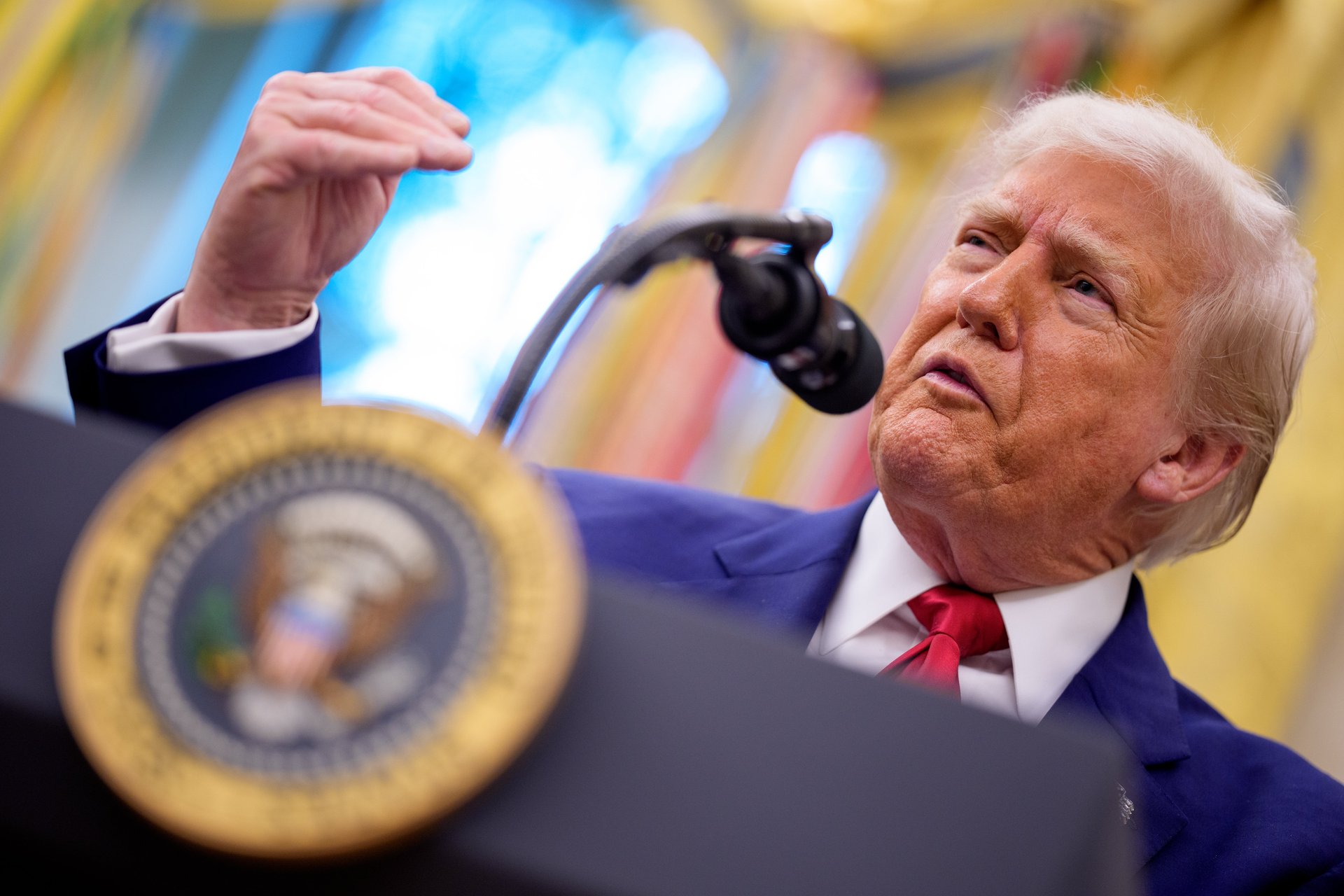Trump gets asked about Wall Street's 'TACO Trade.' He doesn't like it
The president bristles at the notion that his tariff delays and walk-backs mean he's "chickening out"

President Donald Trump would prefer not to talk about TACO — an acronym for “Trump Always Chickens Out,” a term coined by Robert Armstrong of the Financial Times.
Suggested Reading
It references Trump’s negotiating strategy of placing impossibly high tariffs on a certain country’s goods, then delaying them once markets tank, as happened recently with the EU. Or vacillating between tariffs of 145% to 30% in the space of a month, as happened recently with Chinese imports.
Armstrong explained TACO as what happens when markets realize that “the U.S. administration does not have a very high tolerance for market and economic pressure, and will be quick to back off when tariffs cause pain.”
On Wednesday, Trump was asked about TACO by a reporter at the Oval Office.
“You call that chickening out?” Trump responded. “It’s called negotiation.” He then scolded the reporter for asking “the nastiest question.” The president is not necessarily wrong. Trump’s well-documented negotiating style is this: Tell someone you’ll evict them from their house, and then they should be grateful if you let them sleep in a tent on the lawn.
On May 12, the U.S. and China put their war of escalating tariffs on a 90-day pause, which took a lot of hot air out of Trump’s balloon. “The trade war started with Trump promising economic conquest,” wrote Quartz’s Shannon Carroll that day. “Now, there’s a ceasefire that looks a lot like a carefully staged retreat.”
On May 16, Trump claimed there were “150 countries that want to make a deal” with the U.S., and that his treasury and commerce secretaries were sending out letters to foreign leaders that would “be telling people what they will be paying to do business in the United States.”
